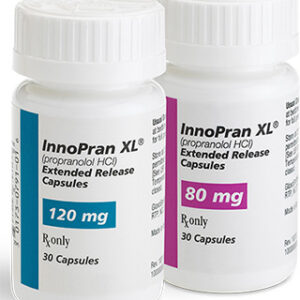Lisinopril is a medication that belongs to a class of drugs called angiotensin-converting enzyme (ACE) inhibitors. It is primarily used in the treatment of high blood pressure (hypertension), congestive heart failure, and to improve survival after a heart attack. Lisinopril works by relaxing blood vessels, which helps to lower blood pressure and improve blood flow.
This medication is available in tablet form and is typically taken once or twice a day, with or without food. It is important to take Lisinopril exactly as prescribed by your healthcare provider. The dosage will depend on your medical condition and response to treatment.
When Not to Take Lisinopril
Lisinopril should not be taken if you have a history of angioedema (swelling of the face, lips, tongue, or throat) caused by previous use of ACE inhibitors. It is also contraindicated in patients who are allergic to Lisinopril or any other ACE inhibitors.
If you have certain medical conditions, such as kidney disease, liver disease, or diabetes, it is important to inform your healthcare provider before starting Lisinopril. Additionally, Lisinopril may not be suitable for pregnant women or those who are planning to become pregnant, as it can harm the unborn baby.
Managing Side Effects
Like all medications, Lisinopril can cause side effects. Common side effects include dizziness, headache, cough, fatigue, nausea, and low blood pressure. These side effects are usually mild and temporary.
If you experience any severe side effects, such as swelling of the face, lips, tongue, or throat, difficulty breathing, or chest pain, seek immediate medical attention. It is important to report any side effects to your healthcare provider so that appropriate measures can be taken.
How to Take It
Lisinopril should be taken exactly as prescribed by your healthcare provider. It is typically taken once or twice daily, with or without food. The tablets should be swallowed whole with a glass of water.
If you miss a dose of Lisinopril, take it as soon as you remember. If it is close to the time for your next dose, skip the missed dose and resume your regular dosing schedule. Do not take a double dose to make up for a missed one.
An overdose of Lisinopril may lead to symptoms such as dizziness, fainting, rapid heartbeat, and extreme fatigue. If an overdose is suspected, seek immediate medical attention.
How Other Drugs Affect Lisinopril
There are certain drugs that may interact with Lisinopril and affect its effectiveness or increase the risk of side effects. It is important to inform your healthcare provider about all the medications you are currently taking, including prescription drugs, over-the-counter medications, and herbal supplements.
Some medications that may interact with Lisinopril include diuretics (water pills), nonsteroidal anti-inflammatory drugs (NSAIDs), potassium supplements, and certain blood pressure medications. Your healthcare provider will monitor your medication regimen and adjust the dosages as necessary to minimize potential drug interactions.
Common Questions
- 1. Can Lisinopril be taken during pregnancy? No, Lisinopril should not be taken during pregnancy as it can harm the unborn baby.
- 2. Can Lisinopril cause kidney problems? Lisinopril is considered safe for most patients, but it may rarely cause kidney problems. If you have pre-existing kidney disease, your healthcare provider may monitor your kidney function while you are taking Lisinopril.
- 3. Can Lisinopril be taken with food? Lisinopril can be taken with or without food, but it is recommended to take it consistently to maintain a steady level of the medication in your body.
- 4. Can Lisinopril cause a cough? Yes, Lisinopril can cause a dry, persistent cough in some patients. If you develop a cough while taking Lisinopril, inform your healthcare provider.
- 5. Can Lisinopril interact with herbal supplements? Yes, Lisinopril may interact with certain herbal supplements. It is important to inform your healthcare provider about all the supplements you are taking to avoid potential interactions.






Reviews
There are no reviews yet.